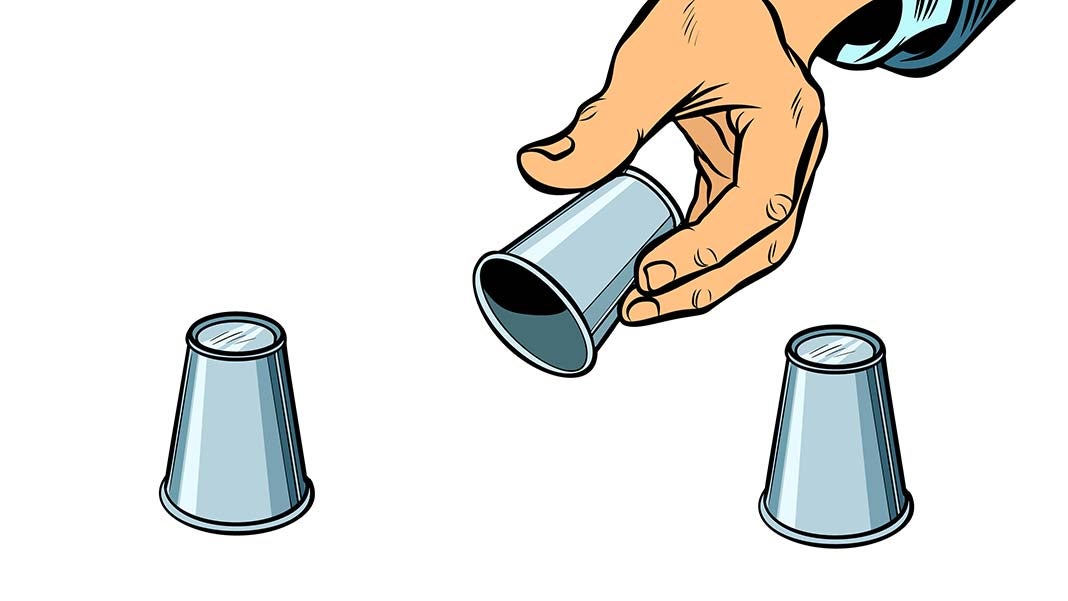
I was stunned and appalled to read an article sponsored by a major sales publication promoting the “Art of the bluff.” The author was cautious to highlight the negative connotations around bluffing—the feeling of manipulation, the proximity to lying, and the knife edge a “bluffer’ must walk to avoid lying.
Trying as hard as I could, I sought something redeeming in the article and that I could learn. I couldn’t find a thing, in fact the article was dangerously out of touch with modern buying/selling, portraying sales as a battle between the buyer and the seller, with each seeking advantage over the other in a zero-sum game of winners and losers.
But I’m getting ahead of myself.
After reading the article, I quickly looked up the definition of bluffing (ignoring those that had to do with a bluff as some form or hill or cliff) to find:
“Merriam-Webster: card games : to deceive (an opponent) by a bold bet on an inferior hand was bluffed out of a winning hand (This was appropriate since the author was using bluffing in poker as a comparison.
Dictionary.com verb (used with object) to mislead by a display of strength, self-confidence, or the like: He bluffed me into believing that he was a doctor. To gain by bluffing: He bluffed his way into the job. Poker. to deceive by a show of confidence in the strength of one’s cards.
Cambridge Dictionary: to try to trick someone into believing something, esp. in order to get an advantage over that person”
I could go on, but you get the idea. Bluffing has to do with deceiving, tricking, or misleading someone. I tried to understand that fine line the sales person must walk to bluff, yet not lie.
The author then digs a deeper hole by providing the following example:
“There’s admittedly a fine line between a bluff and a lie. It can be helpful to think about a bluff as a tactic used in a zero-sum game where both parties are on an even playing field and trying to maximize their individual outcomes. For that reason, a bluff is generally considered ethical, whereas a flat-out lie is not. For example, if you’re trying to negotiate a price, then both parties have the opportunity to bluff. But if you’re selling a product and a customer asks a question about a product capability and you answer dishonestly, you’re likely out of bounds.”
There is so much wrong with the concepts the author outlines. The most egregious are:
Thinking of buying/selling as a “zero-sum Game…Maximizing our individual outcomes.” There is nothing even remotely correct about this. Buying and selling is about shared value creation. The very concept of buying and selling is achieving something, together, that we can’t achieve without each other. Our customers buy because it is the most effective and efficient way for them to achieve our goals. And we get an order for a return we believe to be fair and reasonable—otherwise, why would be accept an order?
The notion of buying/selling or negotiation as a zero sum, win/lose game has never been a part of professional, value-based selling or procurement. Any person promoting this notion of buying and selling should be avoided.
The second idea, implying, as long as we are doing it to each other—lying to each other, it’s OK, it’s part of the bluff. But when it’s one way, it’s a lie.
What kind of twisted logic is this? How can one even think of this as ethical?
Then the author goes on to talk about how to leverage knowledge gaps to your advantage. I suppose the logic is, “What the customer doesn’t know can’t hurt her…”
We can and should leverage knowledge gaps, but not to manipulate and take advantage of the customer. Instead, we should seek to help the customer learn, to help them think about how they could more effectively achieve their goals.
As if this isn’t enough, the author goes on to provide tips in mastering the art of bluffing in sales.
He starts with “knowing your customer.” Of course we have to know our customer, but in this case the author wants to understand their style so we can learn how to appropriately bluff them—deceive and manipulate them. His tip, “The more you know about the stakeholders in a deal, the better you can leverage that information to your advantage.”
His second tip is to be on the lookout for opportunities where we can take advantage of our customer’s behavior, using these opportunities to “get an upper hand.”
He also suggests telling a believable story. Of course story telling is important to help customers learn, understand and internalize what we are selling. But the context of his storytelling advice is focused on finding leverage to take advantage of the customer—not help them.
Finally, he suggests practice. Practice makes perfect and he suggest practice in bluffing to learn how to effectively push people.
He ends with the suggestion, “artful sales leaders are always on the lookout to gain fair advantage…”
It’s hard to believe advice that is so misguided. It’s hard to believe these tactics were ever very effective, yet in today’s world of buying and selling, they are totally out of place.
It’s even harder to believe a once respectable publication, promotes these values and attitudes as appropriate in sales and marketing.














